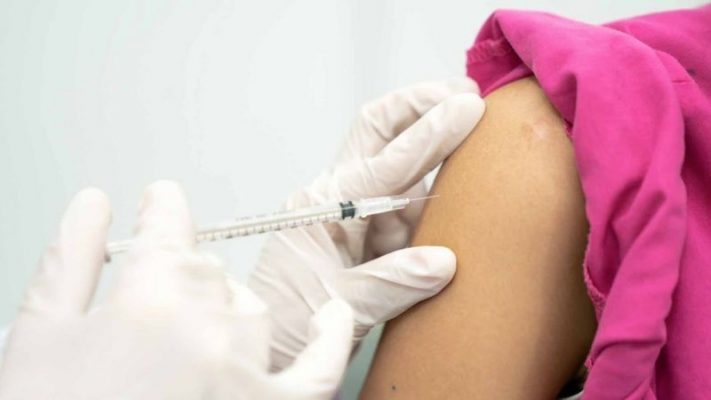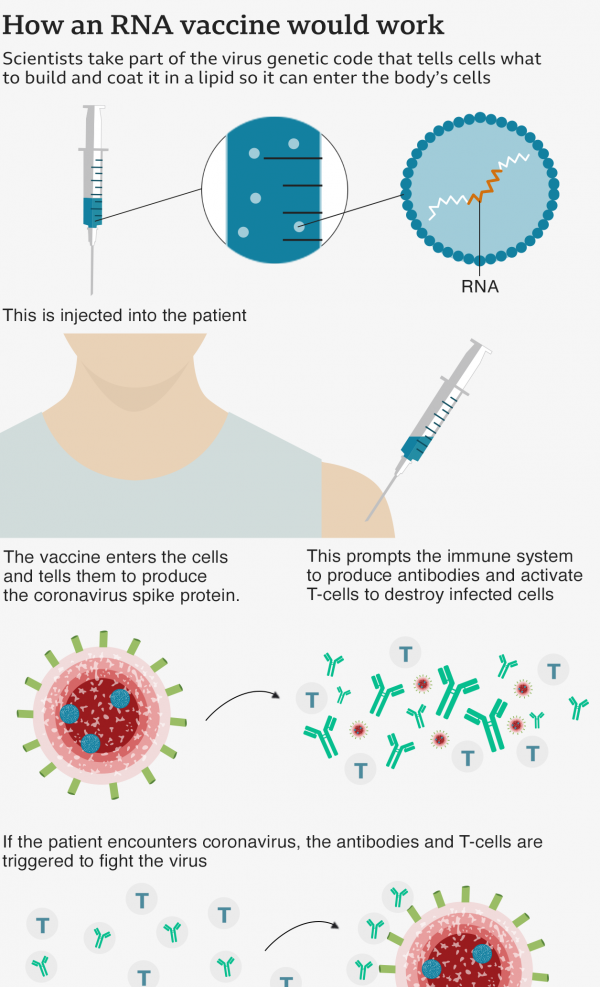 THE first effective Coronavirus vaccine can prevent more than 90% of people from getting Covid-19, a preliminary analysis shows.
THE first effective Coronavirus vaccine can prevent more than 90% of people from getting Covid-19, a preliminary analysis shows.
The developers – Pfizer and BioNTech – described it as a “great day for science and humanity”.
Their vaccine has been tested on 43,500 people in six countries and no safety concerns have been raised.
The companies plan to apply for emergency approval to use the vaccine by the end of the month.
There are still huge challenges ahead, but the announcement has been warmly welcomed with scientists describing themselves smiling “ear to ear” and some suggesting life could be back to normal by spring.
“I am probably the first guy to say that, but I will say that with some confidence,” said Sir John Bell, regius professor of medicine at Oxford University.
A vaccine – alongside better treatments – is seen as the best way of getting out of the restrictions that have been imposed on all our lives.
There are around a dozen in the final stages of testing – known as a phase 3 trial – but this is the first to show any results.
It uses a completely experimental approach – that involves injecting part of the virus’s genetic code – in order to train the immune system.
Previous trials have shown the vaccine trains the body to make both antibodies – and another part of the immune system called T-cells to fight the coronavirus.
Two doses, three weeks apart, are needed. The trials – in US, Germany, Brazil, Argentina, South Africa and Turkey – show 90% protection is achieved seven days after the second dose.
Pfizer believes it will be able to supply 50 million doses by the end of this year, and around 1.3 billion by the end of 2021.
The UK should get 10 million doses by the end of the year, with a further 30 million doses already ordered.
 However, there are logistical challenges, as the vaccine has to be kept in ultra-cold storage at below minus 80C.
However, there are logistical challenges, as the vaccine has to be kept in ultra-cold storage at below minus 80C.
Dr Albert Bourla, the chairman of Pfizer, said: “We are a significant step closer to providing people around the world with a much-needed breakthrough to help bring an end to this global health crisis.”
Prof Ugur Sahin, one of the founders of BioNTech, described the results as a “milestone”.
The data presented is not the final analysis. It is based on the first 94 volunteers to develop Covid – the precise effectiveness of the vaccine may change when the full results are analysed.
Pfizer and BioNTech say they will have enough safety data by the third week of November to take their vaccine to regulators.
Until then it is not possible for countries to begin their vaccination campaigns.
But the companies’ announcement was welcomed as a significant development.
“This news made me smile from ear to ear,” Prof Peter Horby, from the University of Oxford.
“It is a relief… there is a long long way to go before vaccines will start to make a real difference, but this feels to me like a watershed moment.”
The British Prime Minister’s official spokesman said the results were “promising” and that “the NHS stands ready to begin a vaccination programme for those most at risk once a Covid-19 vaccine is available”.
But until then, health chiefs advise the public to continue to wear a face covering, social distance of two metres and wash hands regularly and often to stop the spread of the deadly virus.
Tags:




